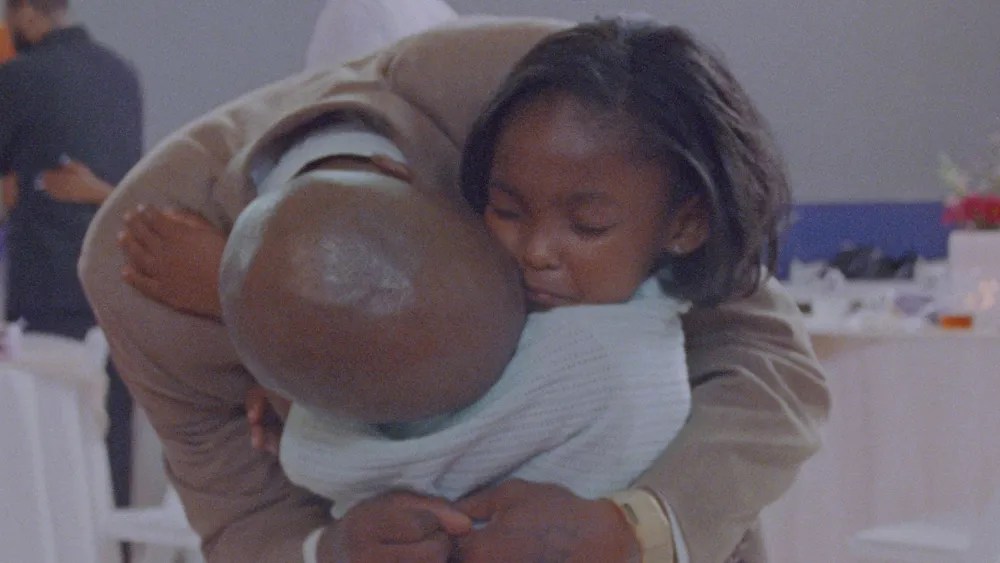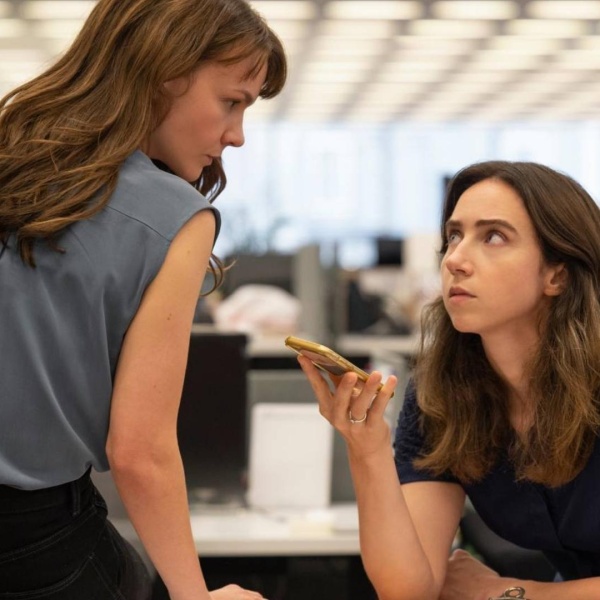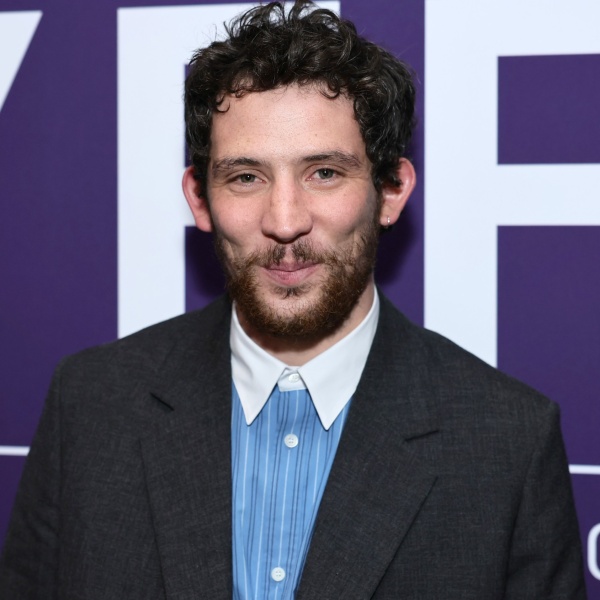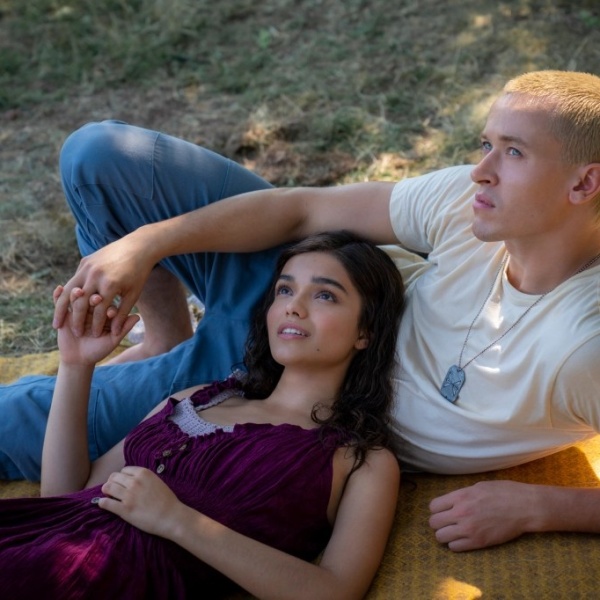An enormously moving documentary made all the more effective by co-directors Angela Patton and Natalie Rae’s steadfast refusal to settle for easy sentiment in the face of difficult outcomes, “Daughters” has as much ugly-cry potential as any film in recent memory. But the most lasting power of this film about a unique father-daughter dance for D.C.-area Black girls whose fathers are in jail comes in a final act that wipes those tears away to examine the hurt they leave behind.
Like Garrett Bradley’s similarly lilting and delicate “Time” before it, “Daughters” conveys the destructive inhumanity of America’s prison system by pointing our attention toward its collateral victims: in this case, the children denied a meaningful relationship with their dads. “Daughters” doesn’t absolve the inmates of their role in that process, but it also doesn’t tell us what they’ve done to deserve their sentences. What would the specifics of Keith Smith’s crimes matter to his impossibly cute five-year-old daughter Aubrey, who practices math by counting the weeks until she can see her father again?
That rhetorical question begs several more: What incentive or hope do prisoners have for rehabilitation if even the most determined among them is severed from their families? How can they stay in their loved ones’ lives if they can’t afford regular phone calls home? How can they help raise their children if they aren’t even allowed to touch them? The architects of our carceral state would have you believe that such cruel restrictions are fitting consequences for criminal actions. But “Daughters” — much like the Date with Dad program itself, which Patton founded as an offshoot of another empowerment program she runs for young Black girls — flips that logic against a system that sees broken families as more of a feature than a bug. This film is founded upon a self-evident idea that it reaffirms with heart-wrenching honesty at every turn: Allowing families to remain intact even when they’re separated behind bars isn’t some kind of charity. It’s actually a necessary step toward ending the same cycle of crime and punishment that our prisons do everything in their power to keep in place.
The film’s chosen subjects range from five to 15, as “Daughters” hones in on four girls who are all at very different stages in making sense of their fathers’ absence. While Aubrey is still young enough to imagine her father in faintly magical terms, 10-year-old Santana has already been hardened to the breaking point (it’s a real gut-punch to hear someone her age insist that she won’t even cry the next time her dad goes to jail, or swear off the idea of becoming a mother herself because being a kid has already proven too painful). Je’Ana, 11, hasn’t seen her dad in a minute because her mom decided that sporadic prison visits were doing more harm than good, while 15-year-old Raziah starts expressing thoughts of self-harm and suicide in the weeks leading up to the dance. Patton and Rae mercifully don’t plumb too deep into the “father wounds” their camera makes plenty evident on its own; always observant but only sometimes observational, the documentary relies on a small handful of expressionistic flourishes (slo-mo, voiceover, storm imagery, etc.) to convey the hurt that it doesn’t want to drag out of its young cast.
In a way, their fathers are able to articulate it for them, even if only from their own perspective. By cutting between the little girls and their locked-up fathers, all of whom have volunteered to participate in the 10 weeks of group counseling sessions required by the Date with Dad program, “Daughters” creates the impression that its subjects are speaking to each other through the edits — dads and daughters alike receiving identical truths that will only take root if they’re able to be shared.
“One thing I have learned over a decade of working with girls is that they already know what they need,” Patton intones at the start. “The wisdom lives inside them.” The same could be said of their fathers, who obviously understand how to stay out of jail, but have been deprived of the motivation required to live for that chance. As one of their counselors puts it: “If you don’t define yourself, the world will define you.” Those words may hang over the inmates like a hard-earned lesson, but they hover over their children like a threat to their own futures.
One of the prisoners admits that he first saw the dance as just a glorified excuse for an extra visit, but it doesn’t take long for him to appreciate how the program has recontextualized his fellow inmates as fathers, his evolving self-identity effectively transforming the way he sees the people around him. Later, after the dance that dominates the mid-section of this movie, Patton and Roe will key into the achingly poignant moment when one of the prisoners — whose own daughter couldn’t make it — breaks down in response to the love he’s seen around him and longs to have for himself.
The premise of this documentary offers endless opportunities for human drama, and “Daughters” wisely does what it can to get out of the way. The film rides a natural build toward the big dance, acknowledging some of the event’s more nuanced complications in passing (i.e., the toll that it takes on the girls’ mothers, who can’t help but wrestle with their own feelings of resentment and forgiveness as they work toward creating a perfect day for the men who made them single parents). But “Daughters” never loses focus on how pressurized and all-consuming the reunion will be. Patton and Rae hold onto that feeling by making sure every minute they show from the event itself lands with maximum force.
And it absolutely does. From the moment we first see the men sitting in their suits and waiting for their daughters to come down the prison hallway, all as nervous and giddy as children themselves, “Daughters” is a 10-ton wrecking ball in motion. But Patton and Rae are too disciplined and mission-driven to see white liberal tears as a worthwhile end unto themselves. They know that a single shot of Aubrey running into her father’s arms will be enough to break you open, and they refuse to gild the lily when there’s more difficult work to be done. On the contrary, they pay equal attention to the hesitancy and discomfort that forms between some of the older daddy-daughter duos. Are the jokes they make a lighthearted way of breaking the ice, or are they meant to glaze over the lack of the deeper bond never allowed to develop below? Even amid all the tears and hugging, both parties so desperate to memorize the feeling of each other’s touch on their skin, we can’t help but recognize that dads and daughters alike will be asking themselves questions of that nature for a long time to come.
It’s a point this film drives home with a third act that finds the answers in a constant state of flux, as Patton and Rae check in on the girls over the years that follow to detail how reality was eventually brought to bear on the memory of that one perfect day. “Daughters” could’ve devoted its entire second hour to the dance and then left us with the compelling factoid that 95% of the men who’ve participated in the Date with Dad program have yet to reoffend. The film, however, opts for a richer — if less dramatically satisfying — final chapter that emphasizes the nuances behind that number.
We learn that some of the girls haven’t seen their fathers since the dance, either by choice or because the prison system constantly shuffles inmates around the country to make space for more inmates, a self-perpetuating need that it refuses to acknowledge. The irrepressible enthusiasm Aubrey had as a five-year-old has soured into a crushing sense of near-resignation by the time we catch up with her a few years later. One of the prisoners is freed on parole, a development his daughter reacts to with a wary skepticism that threatens to keep them at arm’s length.
It’s rare to see a documentary so unafraid to bring you back down to earth on the heels of such an electric high, but “Daughters” — for all the scattershot gauziness of its final 20 minutes — is willing to do the work required to sow fresh seeds of hope. It’s only because of the bittersweet texture the film brings to this coda that we can appreciate the full scope of what it means for a parent to lose touch with their child and vice-versa. “When children are denied their parents’ touch,” a voice tells us, “they doubt the possibility of surviving in the world.” When that doubt is erased, a world of infinite possibilities is ready to take its place. Self-imagination is like a dance in that way: One person leads so that another knows where to put their feet.
Grade: B+
“Daughters” premiered at the 2024 Sundance Film Festival. It is currently seeking U.S. distribution.






